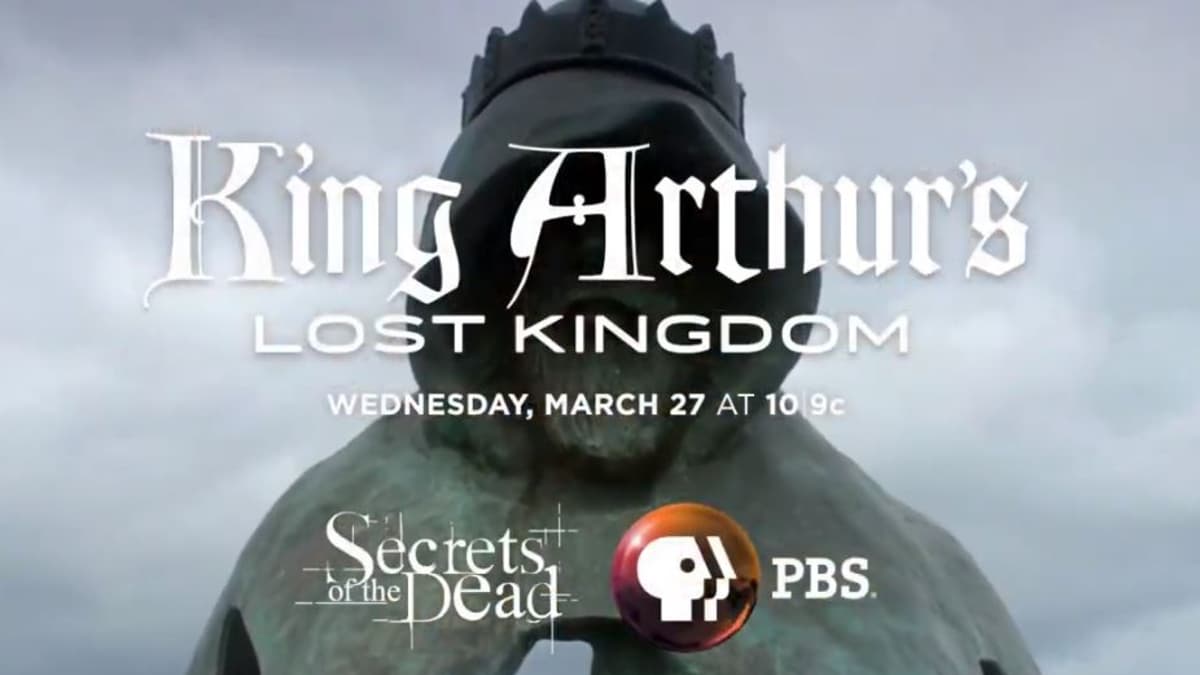
The legend of King Arthur, the young fifth-century boy warrior who allegedly fought valiantly against the treacherous Saxon invaders, continues to be rich source material for modern day films and television series.
The colorful legend of King Arthur has been told again and again in literature and lore for centuries.
But where did the stories of King Arthur’s court come from and more importantly, was there any validity to these brutal tales?
In our exclusive clip from PBS, Professor Alice Roberts and Medieval manuscript curator Julian Harrison pour through a manuscript written in Latin by Geoffrey of Monmouth to discover the beginning of the legend of King Arthur.
Geoffrey of Monmouth’s The History of the Kings of Britain is a fanciful and visceral accounting of the history of how England and all of Britain came to be, with the ancient Saxons and the Britons warring until there was some semblance of unity, overseen a great deal by the magician Merlin.
It took a long time for this to happen as the two factions schemed and committed treachery that is galling if you read the entire manuscript. Modern day TV dramas like Vikings and The Tudors have nothing on the alleged power plays and familial shenanigans that went down in the courts of ancient Britain.
In Book IX, Monmouth details the rise of Arthur who succeeded Uther Pendragon — his father in the kingdom of Britain.
In Chapter 3, Monmouth writes that “Arthur makes the Saxons his tributaries.”
This chapter details a great battle between the Saxons and the Britons once again and revealed that Arthur granted the Saxons petition to return to Germany.
But the Saxons lied to Arthur and returned from their voyage and headed straight for Bath (which they sacked) and this enraged Arthur who subsequently “with his own hands” writes Monmouth, “kills four hundred and seventy Saxons in one battle.”
Was any or all of this true?
Professor Alice Roberts – biologist, archaeologist and Professor of the Public Engagement in Science at the University of Birmingham, UK – is fascinated by what the manuscript says.
Her academic partner in historic sleuthing crime is Julian Harrison – curator of Medieval manuscripts, The British Library – who tells her the exact spots where King Arthur is mentioned and what he allegedly had accomplished.
For fans and those fully engaged in the Arthurian legends, this look at the ancient history of Arthur will have some of their questions answered and it is a fascinating subject.
According to HistoryExtra.com, there was a Round Table, the website noting the words of 13th-century poet Layamon:
Arthur ordered the table to be built for him by a famous Cornish carpenter, who somehow made the table capable of seating 1,600 men (clearly an exaggeration), yet easily portable to wherever Arthur set up his mobile base of operations.
Other stories suggest it was Merlin, the king’s magician, who made the table – “round” he said, “in the likeness of the world” – and who sent out a call to the bravest and truest knights to join a great fellowship whose task was to care for the disenfranchised (especially women), and who would do no harm to anyone who did not deserve it.
Tune in to PBS to see how modern-day British academics are unraveling all these ancient texts and deciphering metaphors and translating ancient languages to piece together the accurate accounting of what was Arthur’s reign.
Secrets of the Dead: King Arthur’s Lost Kingdom airs Wednesday, March 27 at 10|9c on PBS (check local listings) Streams March 28 via pbs.org/secrets and PBS apps.